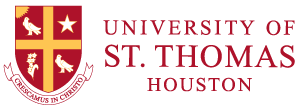Aquinas Day By Day
77 Aquinas’s Topic: The virginity of Mary Scripture: Luke 2: 16 “The shepherds went in haste to Bethlehem and found Mary and Joseph, and the infant lying in the manger.” Texts: Summa theologiae III.28.1 and 3, written 1272-3. After establishing that Mary was the holiest of all humans after her son, Br. Thomas then turns to the issue of her virginity and says that Mary remained a virgin at the conception of Christ, at his birth, and throughout her life. His explanation focuses the nature of Christ. Art. 1 asks: “Was the mother of God a virgin in conceiving Christ?” Br. Thomas’s “response”: One absolutely must profess that the mother of Christ conceived as a virgin, for to say the contrary belongs to the heresy of the Ebionites and of Cerinthus, who thought that Christ is purely human and supposed that he was generated by both sexes. That Christ was conceived by a virgin is fitting, . . . first, in order to preserve the dignity of the Father who sent him. For since Christ is the true and natural son of God, it was not fitting that he have a father other than God, in order that the dignity belonging to God not be transferred to another. Art. 3 asks: “Did Christ’s mother remain a virgin after his birth?” Br. Thomas’s “response”: Without any doubt, one ought to detest the error of Helvidius, who had the presumption to say that after his birth the mother of Christ was carnally known by Joseph and bore other children. For, first of all, this takes away from the perfection of Christ, since just as in his divine nature he is the only-begotten of the Father and in this way his son perfect in all things, so it also was appropriate that he be the only-begotten son of his mother and in this way her perfect offspring. . . And fourth, toward Joseph it would impute the greatest presumption if he attempted to violate her whom he knew through the angel’s revelation to have conceived by the Holy Spirit. Therefore one must assert absolutely that the Mother of God conceived as a virgin, bore Christ as a virgin, and also after his birth will remain a virgin forever. Respondeo dicendum quod simpliciter confitendum est matrem Christi virginem concepisse, contrarium enim pertinet ad haeresim Ebionitarum et Cerinthi, qui Christum purum hominem arbitrantur, et de utroque sexu eum natum putaverunt. Quod Christus sit conceptus ex virgine, conveniens est propter quatuor. Primo, propter mittentis patris dignitatem conservandam. Cum enim Christus sit verus et naturalis Dei filius, non fuit conveniens quod alium patrem haberet quam Deum, ne Dei dignitas transferretur ad alium. Respondeo dicendum quod absque omni dubio detestandus est error Helvidii, qui dicere praesumpsit matrem Christi a Ioseph post partum esse carnaliter cognitam, et alios filios genuisse. Hoc enim, primo, derogat Christi perfectioni, qui, sicut secundum divinam naturam unigenitus est patris, tanquam perfectus per omnia filius eius, ita etiam decuit ut esset unigenitus matris, tanquam perfectissimum germen eius. Quarto, etiam ipsi Ioseph esset ad maximam praesumptionem imputandum, si eam quam, revelante Angelo, de spiritu sancto Deum concepisse cognoverat, polluere attentasset. Et ideo simpliciter est asserendum quod mater Dei, sicut virgo concepit et virgo peperit, ita etiam virgo post partum in sempiternum permanserit. [Introductions and translations © R.E. Houser] |

